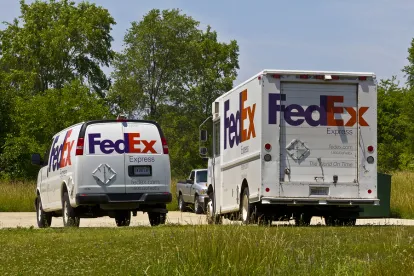Recently, Colorado’s new $0.27 retail delivery fee went into effect. The fee targets all deliveries by a motor vehicle that have at least one item of taxable and tangible personal property. This new levy impacts both in-state and out-of-state retailers, requiring those entities to register with the Colorado Dept. of Revenue and remit funds to the State.
A delivery occurs when any of these items are mailed, shipped, or otherwise transported by a motor vehicle. The preamble of the bill specifically targets the rising consumer delivery culture and large corporations. But the bill itself does not discriminate—it affects anybody and everybody selling items that are to be delivered in the state of Colorado.
While the fee targets retailers who use delivery, the costs are charged to consumers and collected by Retailers. The retail delivery fee applies statewide and is calculated per sale. Invoices and receipts presented to customers must contain a separate line item called “retail delivery fees.” The fee contains certain exemptions such as qualifying wholesalers who currently fall under sales tax exemptions. The fees automatically adjust proportional to inflation.
The purpose of the bill is to sustain Colorado’s transportation system and create more funding for infrastructure development while protecting the environment. Sponsors of the bill also hope to encourage the purchase and use of electric vehicles and the slow phasing out of gas vehicles through the financial costs implemented by the bill in the pursuit of a greener Colorado. The retail delivery fee is one part of at least five other fees implemented by that state under the guise of environmental and infrastructure funding. The legislature anticipates the bill will raise $5.4 billion dollars by 2032 for infrastructure, mass transit, and green energy.
Business groups and a State Senator have filed a lawsuit alleging that SB 21-260 violated ballot initiative Prop 117, which won over 53% of voters in the election. Prop 117 was a ballot initiative in 2020 which required voters statewide approve new state enterprises when the enterprise’s projected or actual revenue from fees and surcharges is greater than $100 million within its first five years. They allege these new fees are just taxes in disguise and are a way for the state government to get around the tax accountability goals of Prop 117.
The fee is codified at Colo. Rev. Stat. § 43-4-218 and enacted through State Senate Bill 21-260, effective July 1, 2022.
Putting It Into Practice: The new fee came into effect July 1, 2022. Retailers who do business in Colorado should ensure they are registered with the Department of Revenue or update registrations as needed. Retailers—including those using third party delivery services—should talk to their tax professionals and ecommerce leads about implementing a process to comply with the new fee.



 />i
/>i

